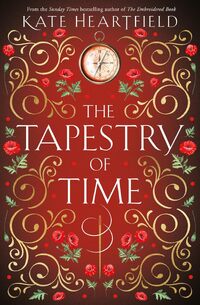 THE TAPESTRY OF TIME |
|

Does time really heal all wounds?
Quilts of Lancaster County #1 War correspondent Jennie King thinks she’s just a temporary guest in her grandmother’s Amish community while she recuperates from the devastating injuries sustained in a car bomb attack that changed her world. But when she meets Matthew Bontrager, the man she had a crush on as a teenager, she wonders if God has a new plan for her. Jennie has emotional and physical scars and though she feels she has come home to this man and this place, she's not sure she can bridge the difference between their worlds. Excerpt Jenny woke from a half-doze as the SUV slowed to approach a four-way stop. “No!” she cried. “Don’t stop!” “I have to stop.” “No!” she yelled as she lunged to grab at the steering wheel. David smacked her hands away with one hand and steered with the other. The vehicle swerved and horns blared as he fought to stop. “We’re in the States!” he shouted. “Stop it!” Jenny covered her head and waited for the explosion. When it didn’t come, she cautiously brought her arms down to look over at David. “We’re in the U.S.,” he repeated quietly. “Calm down. You’re safe.” “I’m sorry, I’m so sorry,” she whispered. Covering her face, she turned away from him and wished she could crawl into a hole somewhere and hide. He touched her shoulder. “It’s okay. I understand.” Before he could move the SUV forward, they heard a siren. The sound brought Jenny’s head up, and she glanced back fearfully to see a police car. “Pull over!” a voice commanded through the vehicle’s loudspeaker. Cursing beneath his breath, David guided the SUV to the side of the road. He reached for his wallet, pulling out his driver’s license. A police officer appeared at David’s window and looked in. Jenny tried not to flinch as he looked at David, then her. “Driver’s license and registration, please.” David handed them over. “Officer, I’d like to explain—” “Stay in your vehicle. I’ll be right back,” he was told brusquely. When the officer returned, he handed back the identification. “Okay, so you want to explain what that was all about—how you started to run the stop sign and nearly caused an accident?” “It’s my fault,” Jenny spoke up. “Jenny! I—” “Let her talk.” “You can’t stop at a four-way,” she told him in a dull voice. “You could get killed.” She drew a quilt more tightly around her shoulders. “You look familiar,” the officer said, studying her face for a long moment. “Now I got it. You’re that TV reporter, the one who was reporting from overseas, in the war zone—” he stopped. “Oh.” He glanced at David. “And you’re that network news anchor. What are you doing in these parts?” “Taking her to recuperate at her family’s house.” The officer glanced back at Jenny. “Didn’t know you were Amish. Thought they didn’t believe in television.” Jenny fingered the quilt. “It’s my grandmother,” she said, staring ahead. “She’s the one who’s Amish.” She met the officer’s gaze. “Please don’t give David a ticket. It was my fault. I freaked and grabbed the steering wheel. I didn’t want him to stop. But it won’t happen again.” The officer hesitated then nodded as he touched the brim of his hat. “I have friends who’ve been through the same thing. Be careful. You’ve been through enough without getting into a car accident.” She nodded. “Thank you.” After returning to his patrol car, the officer pulled out on the road and waved as he passed them. Jenny looked at David. “I’m sorry. I just had a flashback as I woke up, I guess.” “It’s okay,” he told her patiently. “I understand.” She sighed and felt herself retreating into her cocoon. He glanced in his rearview mirror and got back onto the road. They drove for a few minutes. “Hungry yet?” She shook her head and then winced at the pain. “No.” “You need to eat.” “Not hungry.” Then she glanced at him. “I’m sorry. You must be.” He grinned. “Are you remembering that you used to tease me about being hungry all the time?” “Not really,” she said. “Lucky guess, since we’ve been on the road for hours.” He frowned but said nothing as he drove. A little while later, he pulled into a restaurant parking lot, shut off the engine, and undid his seat belt. “It’ll be good to stretch my legs. C’mon, let’s go in and get us a hot meal and some coffee.” “I don’t—” “Please?” he asked quietly. “I look awful.” “You look fine.” He put his hand on hers. “Really. Let’s go in.” Pulling down the visor, she stared into the mirror, and her eyes immediately went to the long scar near her left ear. It still looked red and raw against her too-pale skin. The doctor had said it would fade with time until she’d barely notice it. Later she could wear extra-concealing makeup, but not now, he’d cautioned. The skin needed to heal without makeup being rubbed into it. “Jenny?” She looked at him, really looked at him. Though he was smiling at her, there were lines of strain around his mouth, worry in his eyes. He looked so tired, too. “Okay.” With a sigh, she loosened her hold on the quilt and rewrapped her muffler higher and tighter around her neck. Buttoning her coat, she drew her hat down and turned to reach for the door handle. David was already there, offering Jenny her cane and a helping hand. When she tried to let go of his hand, he tightened his. “The pavement’s icy. Let me help,” he said. “Remember, ‘Pride goeth before a fall.’” Her eyes widened with amusement as she grinned. “You’re quoting Scripture? What is the world coming to?” “Must be the environment,” he said, glancing around. Then his gaze focused on her. “It’s good to see you smile.” “I haven’t had a lot to smile about lately.” His eyes were kind. “No. But you’re here. And if I said thank God, you wouldn’t make a smart remark, would you?” She thought about waking up in the hospital wrapped in her grandmother’s quilt and the long days of physical therapy since then. Leaning on the cane, her other hand in David’s, she started walking slowly, and her hip screamed in pain with every step. Days like today she felt like she was a hundred instead of in her early thirties. “No,” she said, sighing again. “I think the days of smart remarks are over.” The diner was warm, and Jenny was grateful to see that there were few customers. A sign invited them to seat themselves, and she sank into the padded booth just far enough from the front door that the cold wind wouldn’t blow on them. “Coffee for you folks?” asked the waitress who appeared almost immediately with menus. She turned over their cups and filled them when they nodded. “Looks like we’re gonna get some snow tonight.” “What are you going to have?” David asked. Jenny lifted her coffee cup but her hand trembled, spilling hot coffee on it. Wincing, she set it down quickly and grabbed a napkin to wipe her hand dry. David got up and returned with a glass of ice water. He dipped his napkin in it and wrapped the cold, wet cloth around her reddened hand. “Better?” Near tears, she nodded. “She filled it too full,” he reassured her. Reaching for an extra cup on the table, he poured half of her coffee into it. “Try it now.” Jenny didn’t want the coffee now, but he was trying so hard to help, she felt ungrateful not to drink it. “Better?” She nodded, wincing again. “Time for some more meds, don’t you think?” “The pain killers make me fuzzy. I don’t like to take them.” “You still need them.” Sighing, she took out the bottle, shook out the dosage, and took the capsules with a sip of water. “So, what would you like to eat?” asked the waitress. Jenny looked at David. “She’ll have two eggs over easy, bacon, waffles, and a large glass of orange juice,” he said. “I’ll have the three-egg omelet, country ham, hash browns, and biscuits. Oh, and don’t forget the honey, honey.” The waitress grinned. Then she cocked her head to one side. “Say, you look like that guy on TV.” David just returned her grin. “Yeah, so I’m told. That and a dollar’ll get me a cup of coffee.” She laughed and went to place their order. Growing warm, Jenny shed her coat and the muffler. She sipped at the coffee and felt warmer. When the food came, she bent her head and said a silent prayer of thanks. Then she watched David begin shoveling in food as if he hadn’t eaten in days, rather than hours. She lifted her fork and tried to eat. “I like my eggs over easy?” He frowned and stopped eating “Yeah. Do you want me to send them back, get them scrambled or something?” “No. This is okay.” “How did you eat them at the hospital?” She shrugged. “However they brought them.” Deciding she might have liked eggs over easy in the past but now they looked kind of disgusting, half raw and runny on the plate, she looked at the waffle. “I like waffles?” “Love them.” The pat of butter and the syrup were warm. She took a bite. It was heaven, crispy on the outside, warm and fluffy on the inside. The maple syrup was sweet and thick. Bliss. She ate the whole thing and a piece of bacon, too. “Good girl,” David said approvingly. “Don’t talk to me like I’m a kid,” she told him, frowning. “Even if I feel like it.” He reached over and took her free hand. “I’m so proud of you. You’ve learned to walk again, talk again.” “I’m not all the way back yet,” she said. “I still have memory holes and problems getting the right word out and headaches and double vision now and then. I have a long road ahead of me.” David looked out the window. “Speaking of roads . . . as much as I hate to say it, I guess we should get back on it as soon as we can.” Jenny turned to where David was looking and watched as an Amish horse-drawn carriage passed by slowly. The man who held the reins glanced over just then and their eyes met. Then he was looking ahead as a car passed in the other lane and the contact was broken. He looks familiar, she thought . . . so familiar. She struggled to remember. David turned and got the waitress’s attention. As she handed him the check, she noticed Jenny, who immediately looked down at her hands in her lap. “Why, you’re that reporter, the one who—” “Has to get going,” David interjected. “She needs to get some rest.” “Oh, sure. Sorry.” She tore a sheet from her order pad and handed it to Jenny with a pen. “Could you give me an autograph while I go ring this up?” She hurried off, sure that her request would be honored. “Could you sign it for me?” Jenny asked David. Nodding, he took the paper and quickly scrawled her signature, then added his in a bold flourish. “Here you go, two for one,” he told the waitress when she returned. He tucked a bill under his plate and got up to help Jenny with her coat. The SUV seemed a million miles away, but she made it with his help. Once inside, she sank into the seat, pulled the quilt around her again, and fastened her seat belt. “It’ll take just a minute to get warm in here,” David told her. Jenny stroked her hand over the quilt. “I’m not cold. . . . I hate those pills,” she muttered and felt her eyelids drooping. “Making me sleepy. The waffles . . . lots of carbons.” She opened her eyes when he chuckled. Blinking, she tried to think what could be so funny. “Carbs,” she corrected herself carefully after a moment, frustrated at the way the brain injury had affected her speech. “Lots of carbs. Don’t think I used to eat lots of carbs.” “So take a nap,” he told her. “You talk too much anyway.” He grinned to prove he was teasing. Smiling, she tried to think of a snappy comeback. They were always so easy for her, especially with David. But then she was falling into a dreamless sleep. Sometime later, she woke when she felt the vehicle stop. “Are we there?” “Stay here,” she heard David say, then she heard his door open and felt the brief influx of cold air before it closed. She couldn’t seem to wake up, as if her eyes were stuck shut. The door on her side opened, and she heard the click of her seat belt, felt arms lift her. “I can walk,” she muttered. He said something she couldn’t quite grasp, but his voice was warm and deep and so soothing that she relaxed and let him carry her. And then she was being laid on a soft bed, covers tucked around her. Home, she thought, I’m home. She smiled and sank deeper in dreamless sleep. *** Jenny woke to find herself in a bed, the quilt spread over her. Bright sunlight was pouring in through the window. The walls of the room were whitewashed and plain. There were few furnishings: an ancient, well-polished chest of drawers was set against one wall, a wooden chair beside the bed. A bookcase held well-worn volumes and a Bible. She sat up and saw someone had propped her cane on the wall near the bed. Grasping it, she walked carefully to the chest of drawers. When she caught a glimpse of herself in its small mirror, she grimaced. Reaching into her purse on top of the chest, she pulled out her hairbrush and drew it through her short, ash-blonde hair. Her face was too thin, the circles beneath her eyes so pronounced she felt she must look like a scarecrow. Even her eyes looked a faded gray. Leaning heavily on her cane, huffing from exertion, she moved back to the bed and climbed into it. Pulling the quilt over her, she waited for her breathing to level. It was so quiet here, so different from her apartment in New York City, which overlooked a busy street. There was a knock on the door. “Come in,” she called. The door opened and her grandmother peeked around it. “I heard you moving about.” She smiled. “Yes. Guder mariye, Grossmudder.” Phoebe’s austere face brightened. “You remember some of the language?” “Some.” Jenny found it interesting she could remember even though she struggled to find the right word in English right now. She held out her arms and her grandmother rushed to embrace her. They sat on the bed, wiping away tears. “You got it,” Phoebe said, looking at the quilt that covered Jenny. Jenny’s fingers stroked it. “I woke up in the hospital and it was tucked around me,” she said quietly. “I said your name before I could say mine.” Phoebe’s lined face crumpled, and she bent her head, searching in the pocket of her dark frack for a handkerchief. “God brought you through it.” She wiped at her tears and straightened her shoulders. “There is no place He is not.” I’d been in the valley of death, thought Jenny. She knew how close she had come. Maybe one day she could tell her grandmother how she had seen her grandfather and her parents shortly after she’d been injured. Jenny hadn’t been particularly religious before, but she had to admit that her near-death experience had made her look at her life—what was left of what had been her life—in a new way. A note had arrived with the quilt, a nurse had told her. She gave it to Jenny and then had had to read it because the head injury had left a lingering problem with double vision. The words inside had been simple and direct: “Come. Heal.” It had been signed “Your grossmudder, Phoebe.” Jenny studied her now. Phoebe’s face was more lined and the strands of hair that escaped her kapp had more silver. But somehow she didn’t seem any older than the last time Jenny had visited. “You didn’t come for so long after I wrote that I didn’t think you would.” “I was doing physical therapy.” “David told me. He’s a good man.” Jenny smiled briefly and then looked at the window. It was starting to snow. “I should get up and say good-bye so he can get on the road. I don’t want him to get caught in a snowstorm.” “It’s time to get up,” Phoebe agreed, standing and lifting the quilt away from Jenny. “But he left last night.” “Left? Without saying goodbye?” “There’s a note for you. He spoke of something called ‘e-mail’ that’s in a computer?” Her lined face lit briefly with a smile. “I asked him if the machine he brought with your things ran on sunlight. He’d forgotten we have no electricity.” Jenny’s lips curved. “A solar battery, hmm? Good idea but mine doesn’t have one. And that would still leave the problem of how to access the Internet.” “Internet?” “Don’t ask me to explain how it works,” Jenny told her, sitting on the side of the bed. “I interviewed someone about it once, but it’s still a mystery to me.” She sighed. “I haven’t had time to get a new phone. Maybe that should be first on my to-do list.” Phoebe handed her the cane. “First let’s get you up and ready for this day we were given.” A sharp pain shot through Jenny’s hip as she got to her feet, and she had to bite her lip to keep from moaning. She stood still for a moment to gear up for her next move. Phoebe held out her hand, work-worn, dry, and warm. Jenny shook her head. “I don’t want to hurt you.” “I’m stronger than I look. I lead a simple life, but I work hard. You remember from the two summers you came to visit.” Jenny nodded. It had been one reason she had told her father she didn’t want to go back. She wanted to stay home, be with her friends and have fun, not work so hard harvesting summer crops and baking bread and scrubbing the kitchen. And laundry. It was bad enough to have to scoop dirty clothes up and throw them into the washer and dryer back home. At her grandmother’s house, laundry was a daylong chore. Who wanted that? Instead of television there had been singing, and the songs weren’t the latest pop hits—no, these were church hymns! It was such a drag, too, to hitch up a buggy instead of jumping into the car and having Dad drive her someplace. Later, as she’d grown older, she’d regretted her youthful laziness, but it was too late then to visit. She was immersed in college, an internship at a TV station, and then her demanding job that took her everywhere but Lancaster County, Pennsylvania. Her grandmother was older, a little more bent, but the bright light in her eyes was still there, reminding Jenny of the bird she was named after. And her spare frame looked strong beneath the simple dress and sparkling white apron she wore. The medication had worn off long ago. Jenny wanted to just sink back into bed, but she couldn’t. She needed to get moving. She saw Phoebe glance down and a quiet gasp escaped from her lips. The pant leg of her sweats had ridden up as she moved to the edge of the bed and stood. The light faded from Phoebe’s eyes as she glimpsed the scars that ran down the length of one. Bending, Jenny pulled the leg of her sweats down to cover them. “I didn’t want to move you too much when we put you to bed,” she told Jenny. “So I left your clothes on you.” She cocked her head to one side. “Is that what the Englisch are wearing these days?” “When they want something comfortable to relax in,” Jenny told her with a grin. With one hand, she pulled the tunic down over her hips and smoothed its wrinkles. “Let’s get you some breakfast and then you can take a bath and get fresh clothes on.” “Sounds wonderful.” Walking to the kitchen was a major obstacle. Jenny insisted that she needed to walk without her grandmother’s help and took the short journey slowly. “I can’t believe David carried me into the house.” “He didn’t,” said Phoebe, following a step behind. Jenny stopped and turned to look at Phoebe. “You didn’t.” Again there was a ghost of a smile on Phoebe’s face. “Nee. It was Matthew.” Images flitted through Jenny’s mind as she started to navigate the way again. She remembered strong male arms, a deep voice that had sounded comforting when she’d sleepily insisted she could walk. “Matthew?” she repeated. There was something about that name, but she couldn’t quite remember . . . one of the lingering effects of the head injury. “He lives on the farm next to mine. He came to see if I needed any help.” “And I’m sure David was grateful for his help.” She laughed. “David is a nice man, but he doesn’t lift anything heavier than his wallet.” Wallet. Jenny frowned as she thought about what was going to happen to hers. The network was covering her salary, but how long would it do that? Disability payments would be less whenever they started. She didn’t want to dip into her savings, but she knew it might be months before she could go back to work. And who knew if she’d ever be able to do the overseas reporting she’d become known for? *** Her grandmother’s kitchen hadn’t changed. There were simple counters and wooden cupboards, practical pottery bowls set on a shelf. A gas stove filled the room with warmth, and the scent coming from it promised something delicious would emerge soon. A hand-carved wooden table was big enough to seat an army. Jenny sank into one of its wooden chairs. Jenny hadn’t had much appetite for a long time, but her mouth watered when she smelled the bread baking and the coffee. Oh, the scent of the coffee! Her grandmother sliced a loaf that had just been pulled from the oven a few minutes before. She placed it on a plate, setting out a bowl of churned butter, wild blueberry preserves, and a dish of hard-boiled eggs. Jenny bent her head and gave thanks for the meal. When she looked up, Phoebe was smiling. “I’m glad that you still say your prayers.” “Dad left the Amish, but he didn’t forget God,” Jenny told her. “We visited a lot of churches until he found the one he liked, but having a spiritual relationship with God was always important in our home.” Phoebe patted her hand. “I know. He wrote me once that he did a year of missionary work in Haiti while you were in college. I just wasn’t sure if you remembered God after you left home.” “Oh, I surely did.” As her grandmother turned to stir the soup pot already simmering on the stove, Jenny felt a pang of guilt, remembering how often lately she’d questioned God about what had happened to her—questioned Him about how He could let innocent children suffer as she’d witnessed so often in her work. There was a knock at the door. Phoebe crossed the room to answer it and greeted a tall man who looked about Jenny’s age. The morning light coming in the kitchen window caught at his blond hair when he took off his wide-brimmed black hat and hung it on a wooden peg. When he removed his winter coat Jenny saw his plain shirt and pants that showed off his muscular physique. His blue eyes sparkled as he greeted her grandmother and then he glanced over at Jenny. She stared at him, searching her mind for his name when he continued to stare hard at her. He knew her. She could tell it from the way his expression looked hopeful, then disconcerted when she didn’t immediately respond. Why can’t I remember his name? “Jenny, this is Matthew,” said Phoebe as she poured his coffee. She felt so awkward sitting there, painfully aware of the scar on her cheek, of her rumpled sweats. He pulled out a chair and sat at the table with the air of a guest who was frequent and welcome. His eyes were filled with a quiet, thoughtful intensity. “I thought you might need help this morning,” he told Jenny. “My grandmother said you carried me inside last night. Thank you. But I could have walked.” He smiled. “Perhaps. But you were sleeping so soundly.” Jenny found herself staring at his large, strong hands as he cupped his mug and drank the coffee her grandmother had poured. When Phoebe pushed the plate of bread and preserves toward him, he grinned and took a slice, spreading it thickly with preserves. He bit into the bread with relish. “Nothing like your bread,” he told her. “I have a loaf in the oven for you,” she said. “Wunderbaar. I’m going into town. Annie has her appointment. Do you need anything?” When she shook her head, Matthew turned to Jenny. “You?” “A new back and hip,” she wanted to say. But she didn’t want to call attention to herself, didn’t want to make her grandmother worry. She shifted in her chair, wishing she’d taken her detested pain pills to the kitchen with her. So she shook her head and thanked him again. “Ah, Matthew, I’ve thought of something,” Phoebe said suddenly. “I’ll get the money.” “No need to give me money—” But with her usual spryness, she’d already hurried upstairs for it. Jenny liked the sound of Matthew’s voice. She watched as he took another slice of bread and spread it with more preserves. “You should try some,” he said, pushing the jar toward her. There was something on the edge of her consciousness, something that tugged and tugged at her memory. The preserves . . . what was it about them that made her think there was a link between the man and her? She looked up and found him watching her with unusual intensity. It was almost as if he were trying to use telepathy to make her search her memory. But for what? she asked herself. For what?  A beautifully inspirational story of the Amish people and of the seasons we go through in our lives. A beautifully inspirational story of the Amish people and of the seasons we go through in our lives.
Our Past Week of Fresh Picks
A marriage is between two people.And their millions of followers.‘Will keep you turning the pages well into the night’ Catherine CooperMadison Read More »
Don\'t miss out on the stunning DELUXE LIMITED EDITION while supplies last. This breathtaking collectible is only available on a limited first print run Read More »
“Southern bestselling sensation” (Katie Couric Media) Kristy Woodson Harvey returns with a delightfully moving new novel about a mother-daughter duo learning to Read More »
INSTANT NEW YORK TIMES BESTSELLERA Most Anticipated Book of 2025: Goodreads • USA TODAY • Marie Claire &bull Read More »
She\'s right. It can never happen again. She won\'t let it.Ten years have passed, and Ren Taylor is back at square one Read More »
The New York Times and #1 internationally bestselling Department Q series comes to a thrilling conclusion when the team must turn inward Read More »
From Jess Kidd, the bestselling author of Things in Jars who “is so good it isn’t fair” (Erika Swyler Read More »
Two sisters living on Martha\'s Vineyard during World War II find hope in the power of storytelling when they start a wartime book club Read More » |
|
| |||
|
||||





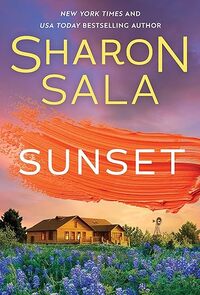

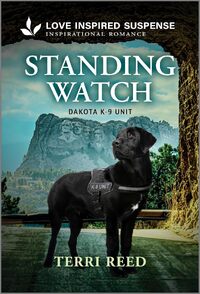


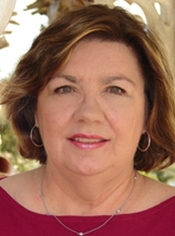
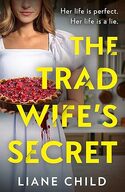
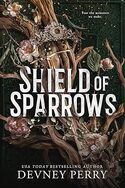

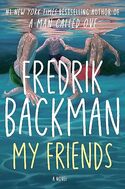
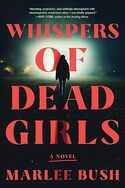
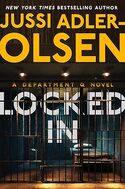
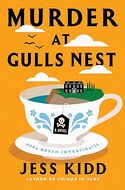

 © 2003-2025
© 2003-2025